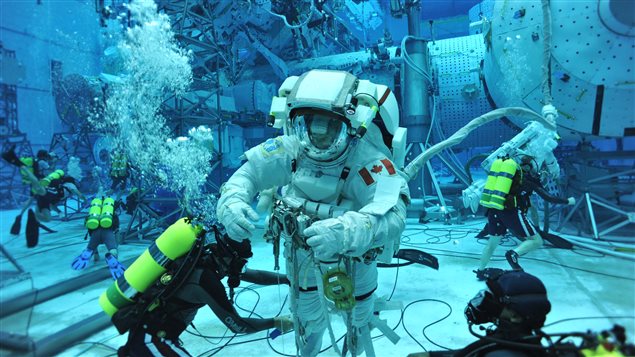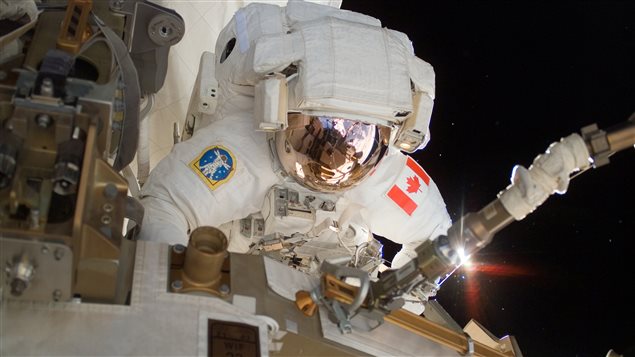The Canadian Space Agency (CSA) is teaming up with researchers from the University of Calgary for a new experiment that will study how long-duration missions to the International Space Station (ISS) affect astronauts’ brains, the agency announced today.
The study called Wayfinding will investigate how the lack of gravity affects the complex neural networks responsible for our sense of direction, said Prof Giuseppe Iaria, the principal investigator for the experiment.
“Wayfinding is our ability to orient within the environment,” said Iaria. “It’s a very, very important skill that everyone can realize. We all need to be oriented in order to navigate and find our way around.”
(click to listen to the full interview with Prof Giuseppe Iaria)
ListenBut the research, which will involve astronauts conducting tests in virtual reality before and after their deployment at the ISS, will have some very real implications here on Earth, said Iaria who heads the NeuroLab, a cognitive neuroscience research laboratory at the University of Calgary.
“If we can develop some training tools for astronauts, many patients on Earth will benefit from that as well,” Iaria said. “The same training tools can be applied for people who have actually lost their ability to orient in space, to find their way around due to a variety of reasons, for example, like a stroke or a neurodegenerative disorder like Alzheimer.”

The five-year experiment is slated to begin in 2018. Canadian astronaut David Saint-Jacques will have the opportunity to participate in Wayfinding as part of his six-month mission in 2018-19, the CSA said.
“We will be doing some work now to develop the very specific tasks that we want the participants, the astronauts to take before they go to the International Space Station for their six months stay there and after they come back,” Iaria said.
The researchers will be conducting some neuroimaging studies where they look at the functional organization of the brain, as well as the activities of the brain when the participants solve space orientation tasks, he said.
“The difference between before and after the space flight will give us very significant information on how the brain is rearranging, reorganizing itself with the lack of gravitational forces,” he said. “It’s also an indirect way to look at brain plasticity and we’re really excited about that.”







For reasons beyond our control, and for an undetermined period of time, our comment section is now closed. However, our social networks remain open to your contributions.